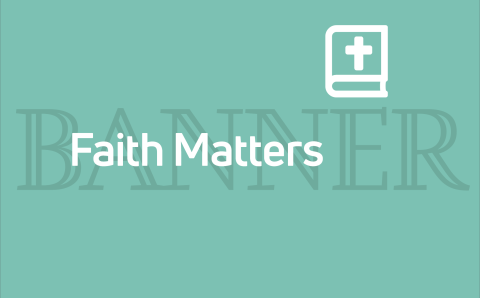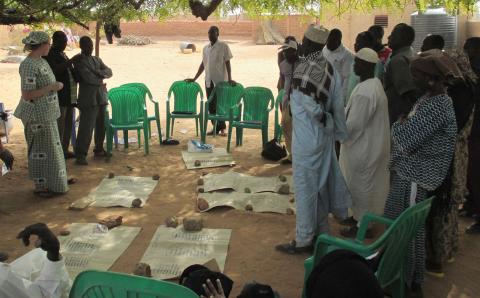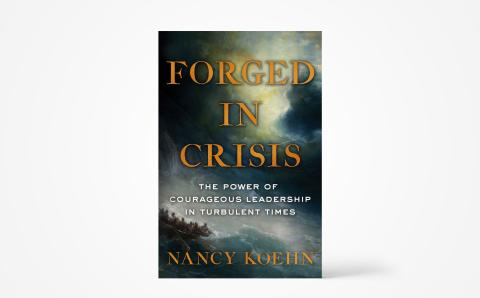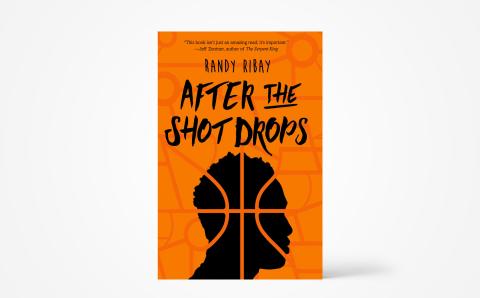Gun Culture
The most poignant and thought provoking "go-to" writings in The Banner are, for me, those of editor-in-chief Shiao Chong. His contributions shed light into the heart of not just Christian Reformed churches but the kingdom church.
“Faith and Gun Culture” (April 2018) offers a welcome journey into the spiritual question of gun culture in North American society.
I am well aware that in some congregations on any given Sunday, there are those who carry concealed weapons—those who are “designated shooters.” I ask the question, with Chong, "How does this gun culture align with the fruit of the Spirit, which includes love, peace, patience, and gentleness?”
Barb Clouse, Battle Creek, Mich.
I’m so deeply grateful for the recent editorial “Faith and Gun Culture.” Thank you for your brief, beautiful, and spot-on insight into this issue facing American Christians, and truly all Christians around the world.
Linda R. Rubingh, Grand Rapids, Mich.
Editor Chong’s proposal that the CRC needs an “official position on gun culture” is possibly taking too narrow a view (“Faith and Gun Culture”). Wouldn’t any study be better if it focused more inclusively on the issue of societal violence as a whole, and not just the use or misuse of one tool? There was a reason why God gave us the sixth commandment, “Thou shalt not murder.” The act of violence begins with an attitude or a thought, not with an object.
Sam Laswell, Redford, Mich.
Thank you, Mr. Editor, for your biblical response to the question of carrying concealed weapons in church (“Big Questions,” March 2018). After every mass shooting in the U.S. there is hand-wringing and talk about “thoughts and prayers.” But nothing changes, not even after Sandy Hook. Too many members of Congress are beholden to the National Rifle Association, which blocks every attempt at gun control. Surely followers of Jesus can raise a cry for justice and demand that their legislators in Washington do something about the insanity caused by [the U.S.’s outmoded Second Amendment. Some will say that since I am from Canada I have no business speaking to this issue. But before we are Americans or Canadians, we are followers of Jesus, the Prince of Peace. Our quest for righteousness and peace does not depend on political affiliation but on our obedience to our Savior.
Gerald Hogeterp, Brantford, Ont.
#MeToo
Thanks for publishing the excellent article by Amanda Worst (“#MeToo and Becoming a Safer Church,” April 2018). It made me think of the Olympic biathlon—skiing and shooting. The circles are synods, classes, and councils. The bull’s-eye is the pulpit. Worst writes, “Breaking the silence means speaking about sexual violence in all its forms from the pulpit.” When was the last time you heard from the pulpit about one form: pornography?
Preaching the whole counsel of God on Sundays does not require a synod, a classis, nor council meetings on Mondays.
Jake Prins, Grand Rapids, Mich.
Remembering Herm Keizer
On Jan. 27 there was a ceremony remembering four chaplains of different faiths who sacrificed themselves to save others when a U-boat sank the USS Dorchester in 1943. Yet the chaplain mentioned most during the ceremony was the CRC’s recently deceased Chaplain (Col.) Herm Keizer (“In Memoriam: Herman Keizer Jr.,” March 2018) because his passing was a great loss to the veterans’ community. I honor him as a fellow veteran of great courage and admire his work for our denomination and our country. I disagreed with him on issues of war and peace. So what? I need to fellowship with people whose opinions on nonreligious issues are different from mine—we all do!
Raymond P. Opeka, Grand Rapids, Mich.
Eating toward Shalom
I have worked with dozens of agricultural producers for almost 30 years now (“Eating toward Shalom,” Mar. 2018). The farmers I come into contact with are some of the most conscientious and humane people I know, going to great lengths to care for their livestock. We live in an era where the largest percentage of the world’s population (6 billion people) lives above the poverty level. There is still work to do as 700 million people remain below that line.
Farmers provide a safe and efficient food supply system that feeds the world. Genesis 1:26 speaks of humankind’s dominion over the fish of the sea, birds of the air, and livestock. That mandate is an obligation to be good stewards of those resources for the good of all. If we go to the food ethics system suggested by the writer, we will face greater food costs, which will cause an increased number of people to be priced out of the market from an economic standpoint and result in a lesser food supply.
Don Koops, Osborne, Kan.
In response to “Eating toward Shalom”: As a producer of milk, beef, and grain, your article has led me to many places, but none are peaceful. Part of God’s calling for my life as a farmer is care for his creation, which includes confined livestock. Everyone likes a belly full of cheap food—even those who only eat vegetables. So in some way we’re all using God’s creation.
J. Paul Vellema, Harris, Iowa
I am a proud Canadian egg farmer. Our hens reside in enriched colony housing where they have a nest box, perches, scratch pads, and 48 square feet to roam, allowing them to exhibit their natural behaviors. Eggs contain six grams of protein and 14 essential nutrients for about $2 per dozen. Not sure how this contributes to “needless suffering, degrading health, or marginalizing the poor” (“Eating toward Shalom”). Aren’t we called to feed the world (affordably and sustainably) with plant and animal diets as the Israelites were?
Andrew Elgersma, Elora, Ont.
Thank you, thank you, Matthew Halteman, for your eloquent article (“Eating toward Shalom”) on meat consumption. The responses we get from fellow Christians when we tell them we don’t eat meat indicate that they are startled and bewildered.
Doreen Oom, Grandville, Mich.
Concerning the article “Eating toward Shalom”: A big thank you. This information about the treatment of animals on “factory farms” is why I became a vegetarian about 35 years ago. Readers, please support local farmers who treat animals humanely.
Sue McCarthy, Dorr, Mich.








